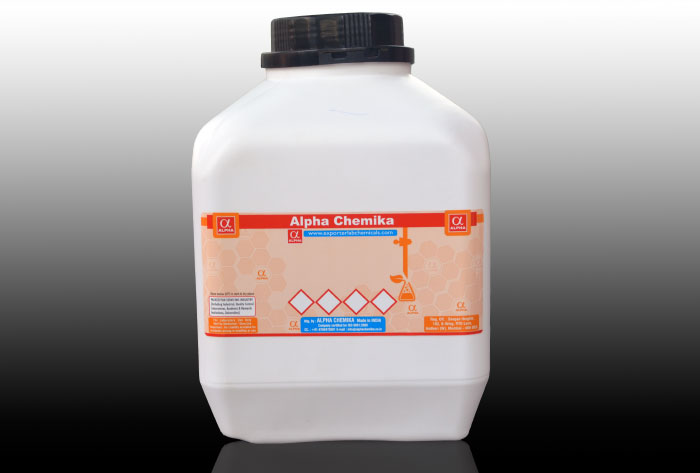Blog
Sodium Carbonate Monohydrate: What Is It?
Sodium carbonate monohydrate is a chemical compound with the formula Na₂CO₃·H₂O, commonly known as soda ash or washing soda. It is widely used across many industries due to its versatility and effectiveness in a variety of applications. From water treatment to cleaning products, sodium carbonate monohydrate plays an important role in improving processes and producing high-quality products.
The Chemical Structure of Sodium Carbonate Monohydrate
At its core, sodium carbonate monohydrate consists of sodium (Na), carbon (C), oxygen (O), and water (H₂O). The “monohydrate” part means that one molecule of water is bonded to the sodium. This makes it slightly different from anhydrous sodium carbonate, which does not contain water molecules in its structure. This water molecule gives sodium monohydrate its unique properties.
Common Uses of Sodium Carbonate Monohydrate
Sodium carbonate monohydrate is used in various industries for a wide range of applications. Here are some of its most common uses:
- Water Treatment: It helps soften water by removing calcium and magnesium ions, making it a key ingredient in water purification processes.
- Detergents and Cleaning Products: Sodium carbonate is a powerful cleaning agent that removes dirt and grease, making it a popular ingredient in household and industrial cleaning products.
- Glass Manufacturing: It is an essential component in the production of glass, where it reduces the melting point of silica, saving energy and enhancing the efficiency of the glassmaking process.
- pH Regulation: People use sodium carbonate in pools and industrial processes to adjust and maintain pH levels, ensuring optimal operating conditions.
Sodium Carbonate Monohydrate in Water Treatment
In the water treatment industry, sodium monohydrate is used to neutralize acidic water, making it safe for consumption and other uses. By raising the pH level, it prevents the corrosion of pipes and fixtures and enhances the overall water quality. Sodium monohydrate also acts as a coagulant in the removal of impurities, making it a key player in large-scale water treatment plants.
The Role of Sodium Carbonate Monohydrate in Detergents
Sodium carbonate is an active ingredient in many household cleaning products due to its ability to break down organic matter and eliminate stains. Its high alkalinity makes it effective at removing grease and oils, making it a common choice in both laundry detergents and surface cleaners. Additionally, it helps stabilize the other chemicals in detergents, ensuring consistent and effective cleaning performance.

Sodium Carbonate Monohydrate in Glass Production
In the glassmaking industry, sodium monohydrate plays a crucial role in lowering the melting point of raw materials like silica (SiO₂). This reduces the amount of energy required during production, leading to cost savings and more efficient operations. Sodium monohydrate also helps improve the durability and quality of the glass by increasing its chemical stability and reducing defects.
Benefits of Sodium Carbonate Monohydrate in Industrial Processes
- Cost Efficiency: Sodium carbonate is an affordable raw material that delivers high performance across various applications, reducing production costs.
- Environmentally Friendly: Industries focused on sustainability prefer this chemical because it remains relatively environmentally friendly when used in appropriate amounts.
- Versatility: Industries use sodium carbonate in a wide variety of processes, ranging from water treatment to producing everyday consumer goods.
Health and Safety Considerations
While sodium monohydrate is widely used, handling it requires some precautions. It can cause skin irritation and eye discomfort, so it’s important to wear protective gear when working with this compound. If it is accidentally ingested or inhaled, medical attention should be sought immediately.
How to Safely Store Sodium Carbonate Monohydrate
Proper storage of sodium monohydrate is essential to maintain its quality and effectiveness. The compound should be stored in a cool, dry place, away from moisture and incompatible materials like acids. Keeping it in sealed containers will prevent the absorption of moisture and preserve its chemical properties.
Sodium Carbonate Monohydrate vs. Anhydrous Sodium Carbonate
The main difference between sodium monohydrate and its anhydrous counterpart is the presence of a water molecule in the monohydrate form. This small difference has a significant impact on their behavior in various applications. For example, sodium monohydrate is less prone to dusting and easier to handle than anhydrous sodium , making it a more convenient option in certain industrial processes.
How to Choose the Right Sodium Carbonate for Your Needs
Choosing between sodium monohydrate and anhydrous sodium carbonate depends on the specific requirements of your industry or process. Consider factors like ease of handling, moisture sensitivity, and desired chemical properties. Consult an expert to determine which form of sodium carbonate best suits your needs.
Conclusion
Sodium monohydrate is an essential compound with a wide range of applications in industries such as water treatment, detergent manufacturing, and glass production. Its unique properties, affordability, and versatility make it a valuable resource for businesses looking to optimize their processes. By understanding its uses and benefits, you can make informed decisions about how to incorporate sodium monohydrate into your operations.
